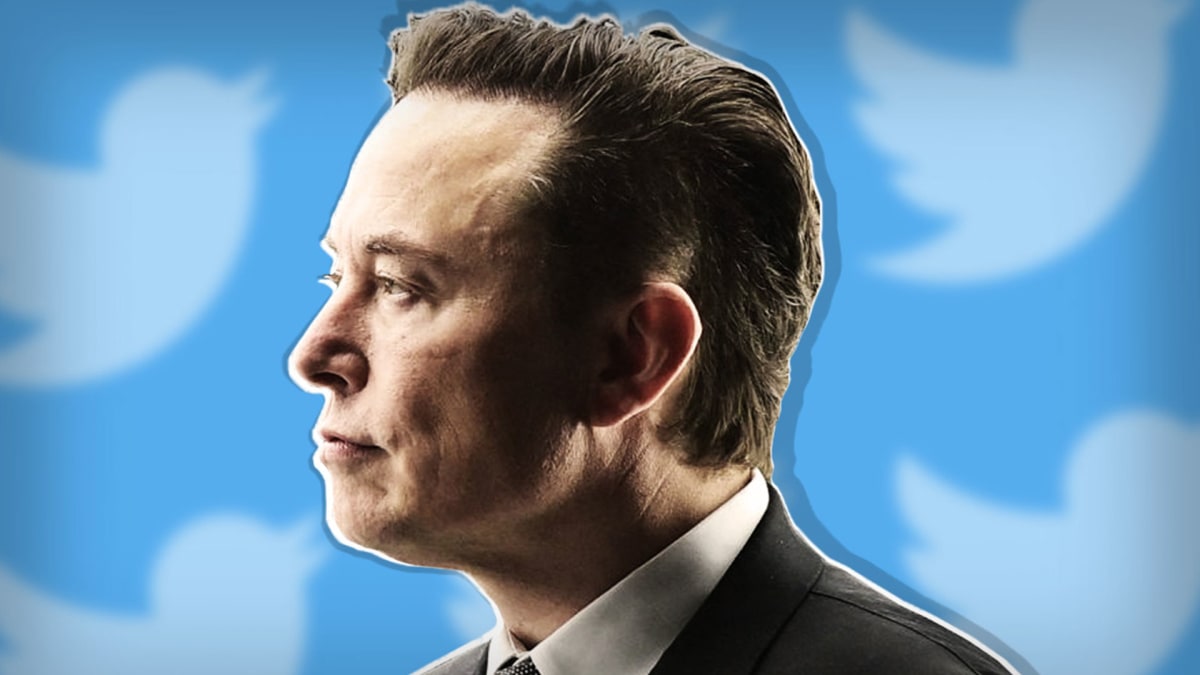
He may have built an image of iconoclast and maverick, who is not afraid to take risks and own his mistakes.
But it is still very difficult for him to publicly admit that he was wrong.
One must read between the lines to detect his admission of errors and failures.
That's what just happened with Twitter, the platform for which he overpaid a whopping $44 billion last October. Elon Musk thought he was the only one who could save the social network from its financial woes. He probably felt that his name, which is in itself a brand, guaranteed him success, as with his other companies ,Tesla and SpaceX.
He also wanted to do it by creating a new economic model: subscriptions. In the second quarter of 2022, the last period for which data is available – Musk took Twitter private, so public disclosures are no longer available – 91.4% of revenue was generated by advertising. Basically, Twitter, like Facebook (META), Instagram, Alphabet's (GOOGL) YouTube, Snapchat (SNAP), and TikTok, depended on advertisers for its butter.
Blue Subscriptions
The Techno King therefore decided to revamp Blue, the platform's subscription service. One of the great revolutions is that he incorporated the blue checkmark into Blue. This blue badge, which confirms the identity of the person or entity behind an account, was free under Twitter 1.0. Celebrities, organizations and politicians were fond of this badge because it prevented them from being impersonated.
Musk raised the price of Blue to $7.99 per month for individuals and $1,000 per month for organizations.
And to mark the break with Twitter 1.0 and with other social networks, Musk gave the middle finger to advertisers. After promising them that the platform would not become a "hellscape," he got rid of all the safeguards limiting hateful, racist, anti-Semitic remarks, the spread of false information, etc. He heralded the era of post-what-you-want-as-long-as-it-is-legal. This laissez-faire approach was in line, according to him, with "free speech," of which he says he is an "absolutist" defender.
This bravado caused an exodus of advertisers, further financially weakening Twitter. But Musk was so convinced that his strategy of drastic cost reduction - he cut more than 5,200 people out of the 7,500 that the company employed when he arrived - and the subscriptions would allow the platform to find its footing.
To be clear, he thought his name would be enough to attract content creators, influencers and users.
He declared on Feb. 15 that he would remain CEO until the end of the year, to stabilize the company. But three months later, he backtracked. He just announced a new CEO, Linda Yaccarino. What is striking is that Yaccarino is a veteran of advertising.
Officially, Musk says he is freeing up his time to better focus on Tesla (TSLA), after having been criticized by many retail investors of the electric vehicle manufacturer who see Twitter as a distraction.
To Bring Back Advertisers
To really understand the reason for his expedited decision to step down, you have to look at Yaccarino's profile. This one clearly tells us that the tech mogul admits to having the wrong strategy regarding Twitter. He indirectly admits that his bravado did not produce the desired effect and that he undervalued the difficulties Twitter was facing. Basically, he does not really master the intricacies and mysteries of the business of social networks.
Yaccarino has spent her entire career in television, with an initial stint of 20 years with the Time Warner group, which has since become Warner Bros Discovery (WBD). At NBCUniversal, she overhauled the advertising strategy to support the move from video to streaming.
Her mission at Twitter is simple: to regain credibility with advertisers and restore the lost trust and connection with them.
A few weeks ago, she did not hesitate to give some advice to Elon Musk when she interviewed him in front of an audience of advertisers, as part of the “Possible” marketing conference. The goal, she told him, is to make Twitter a place where advertisers will be excited to spend more money, emphasizing product development, security, and content moderation.
According to Insider Intelligence, Twitter's revenue is projected to drop 30% in fiscal 2023, to less than $3 billion. And Blue, which is struggling to convince users, will not make up for this shortfall.
Musk vs. World Economic Forum
If there was still any doubt that the choice of Yaccarino as CEO is an admission of failure on behalf of Musk, it is enough to examine the actions of the billionaire until recently. In January, Musk put down the World Economic Forum (WEF). He mocked the organization as trying to be the "boss of Earth." This earned him the applause of his millions of fans, including many conservatives.
According to Yaccarino's LinkedIn profile, she is "the Chairman of the WEF's Taskforce on Future of Work and sits on the WEF's media, entertainment and culture industry Governors Steering committee."
Musk did everything to knock down Dr. Anthony Fauci, the face of the American response to the covid-19 pandemic. He sharply criticized the restrictions and measures related to the coronavirus. Yaccarino has spoken in favor of masks and vaccines during the pandemic.
By bringing in Yaccarino, Musk is running the risk of angering the conservatives of whom he has become the hero in recent months.
Accepting this risk is further proof that the Techno King has failed and needs help.
Urgently.







